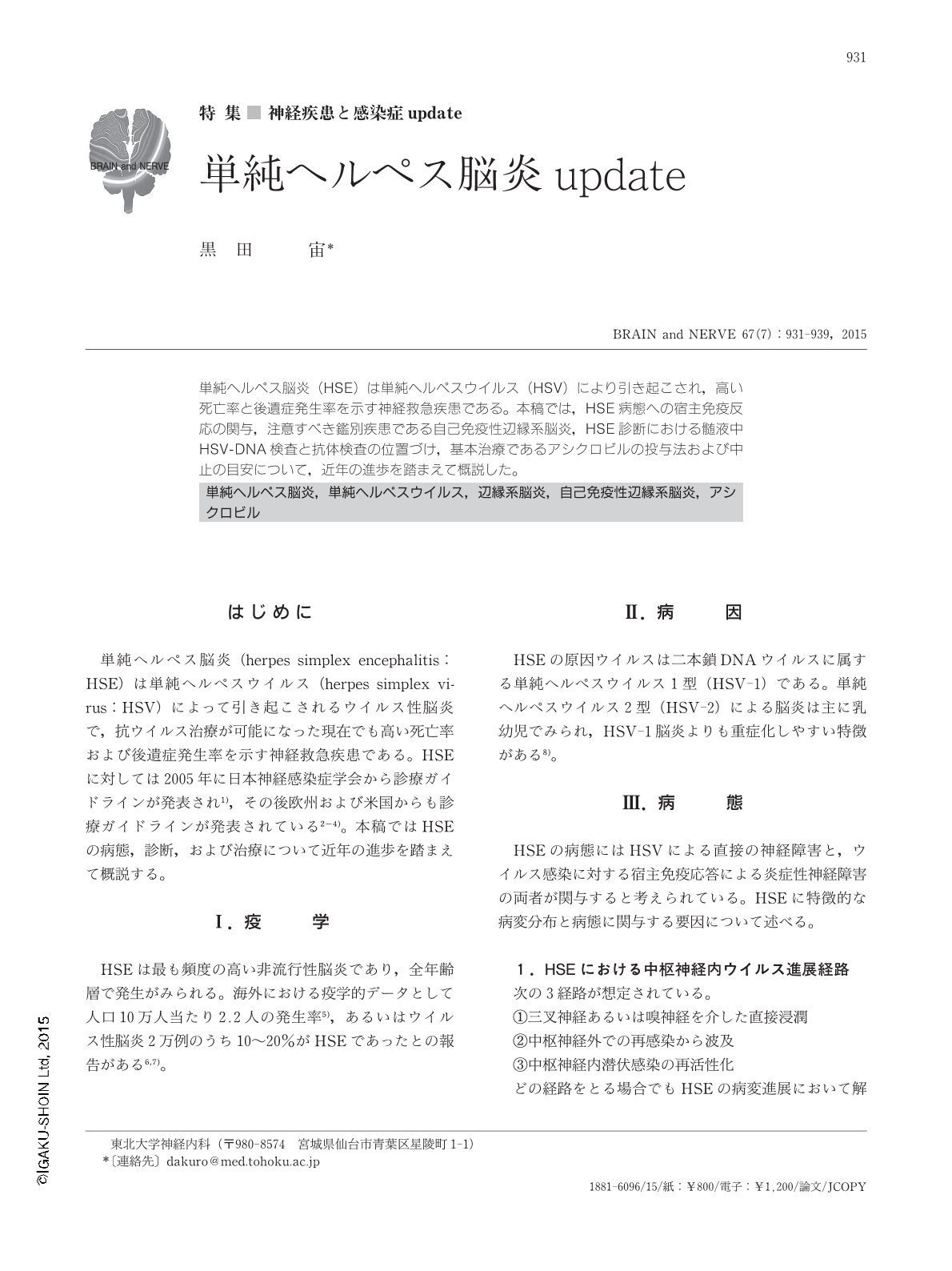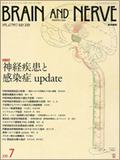Japanese
English
- 有料閲覧
- Abstract 文献概要
- 1ページ目 Look Inside
- 参考文献 Reference
単純ヘルペス脳炎(HSE)は単純ヘルペスウイルス(HSV)により引き起こされ,高い死亡率と後遺症発生率を示す神経救急疾患である。本稿では,HSE病態への宿主免疫反応の関与,注意すべき鑑別疾患である自己免疫性辺縁系脳炎,HSE診断における髄液中HSV-DNA検査と抗体検査の位置づけ,基本治療であるアシクロビルの投与法および中止の目安について,近年の進歩を踏まえて概説した。
Abstract
Herpes simplex encephalitis (HSE), which is caused by the herpes simplex virus (HSV), is a severe neuro-infectious disease characterized by high mortality and morbidity. We reviewed the pathomechanism, diagnosis, and treatment of HSE based on recent progress in the field. The highlighted mechanism of HSE in this review is immune-mediated tissue damage caused by host immunity. Major symptoms of HSE include psychiatric alteration, Klüver-Bucy syndrome, and amnesia, caused by frequent involvement of the limbic system. An important differential diagnosis of HSE is autoimmune limbic encephalitis, including anti-N-methyl-D-aspartate receptor encephalitis, and anti-voltage-gated K+ channel encephalitis. HSE is definitely diagnosed based on the detection of HSV-DNA by polymerase chain reaction and/or the detection of HSV-IgG antibody in the cerebrospinal fluid (CSF). Repeated CSF examinations are required for the accurate diagnosis of HSE. Acyclovir (ACV) plays a central role in the treatment of HSE, and its early initiation is essential for good outcome in patients with HSE. Acute administration of corticosteroids for HSE is controversial; a randomized, double-blind, placebo-controlled trial to investigate the efficacy of add-on corticosteroids to ACV is ongoing.

Copyright © 2015, Igaku-Shoin Ltd. All rights reserved.


